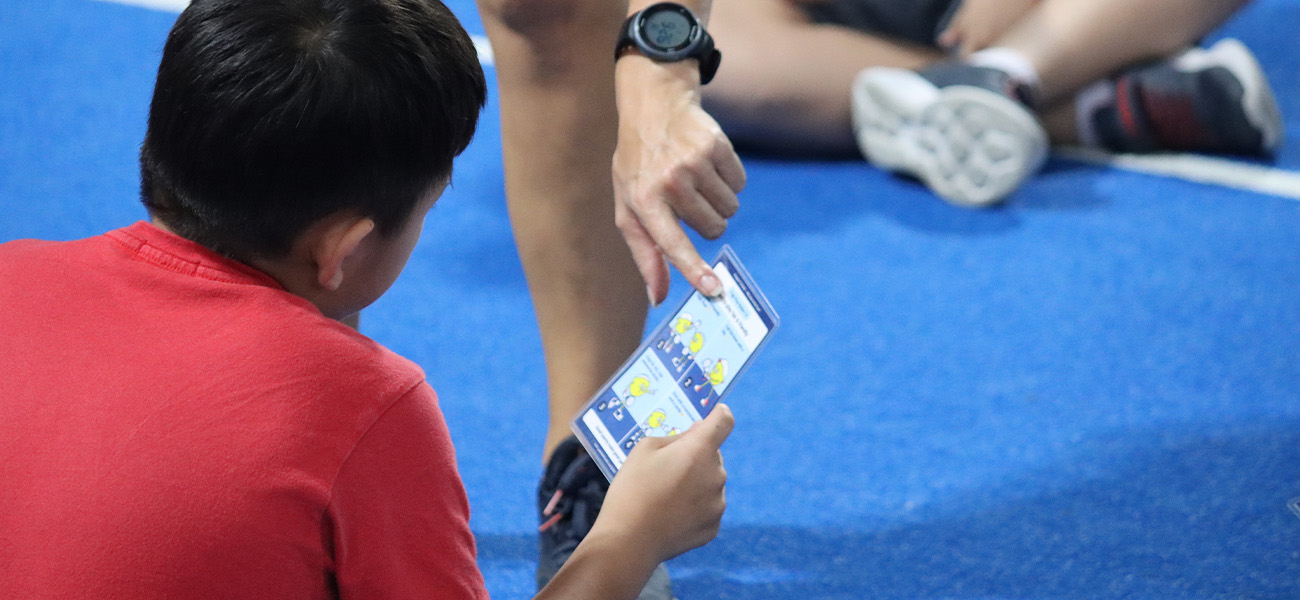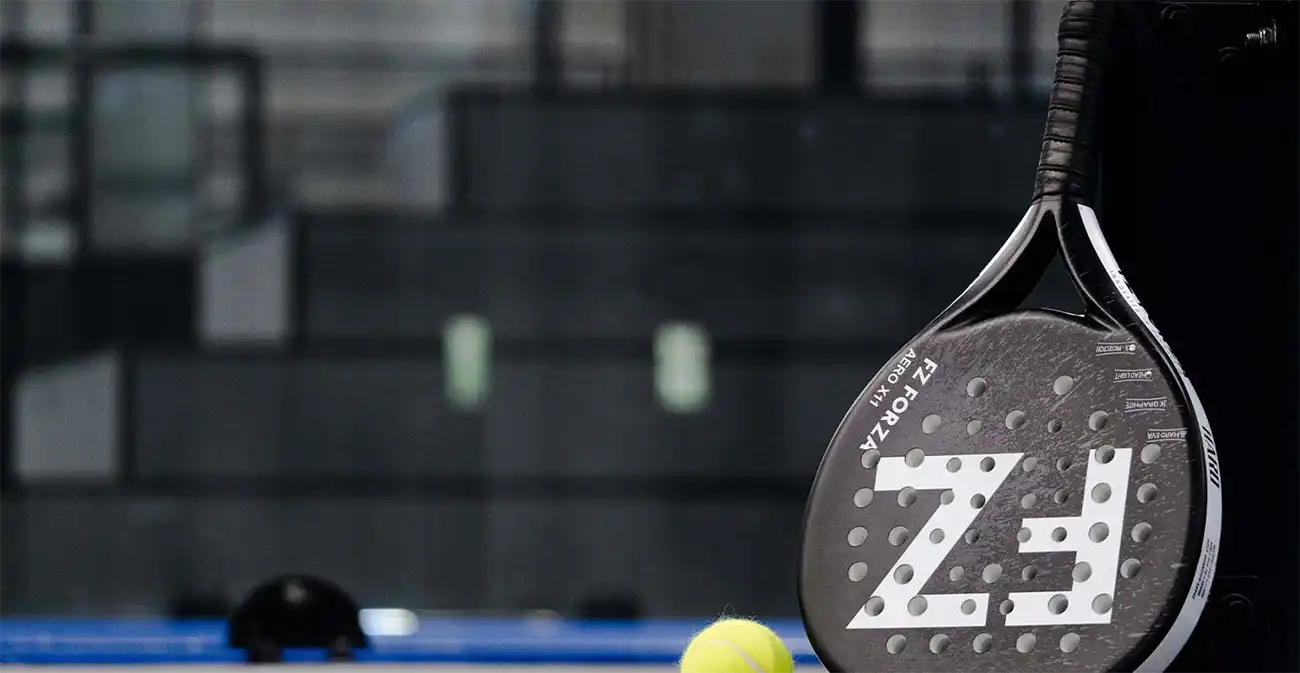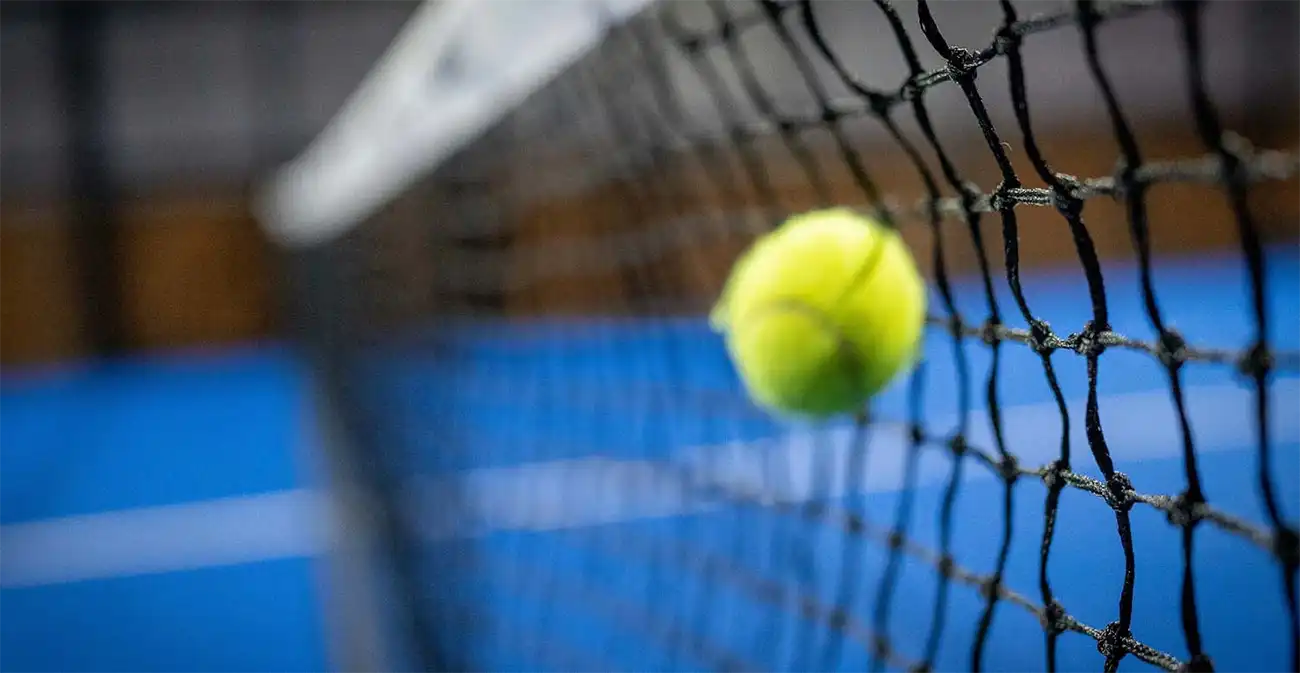Padel is growing quickly, and kids padel coaching programmes are starting to appear in more clubs across the region. For parents, it’s a good time to take a closer look at what makes a programme worth joining. Some are casual and flexible, others are more structured with weekly sessions and clear goals. The best ones help kids improve while keeping the atmosphere light and enjoyable.
A good padel coaching programme for children has to strike the right balance. It should be fun and full of games, but also build coordination, timing, and confidence. The right coach will use simple language, adapt drills to suit different ages, and create an environment where kids want to play and keep learning. Social bonds are just as important, group sessions, match days, and a sense of team all add to the experience.
Visual tools like Passport to Padel Juniors by Padel Skill Cards can make this even easier. When used in lessons, the cards help kids stay focused, offer small wins to work towards, add variety for the coach and offer games for fun and learning. A good coaching programme doesn’t need to be complicated, it just needs the right approach, a bit of structure, and tools that help both the coach and the player.
What to look for in a junior padel coaching programme
Before signing up, it’s worth visiting the padel club you’re considering and watching a kids padel coaching session in your child’s age group. Most clubs will let you observe from the sidelines, and it can give you a real sense of how the programme works. Notice how the coach interacts with the children, whether the kids are actively involved, and how the pace of the session is managed. This short visit can help you decide whether the club takes its junior coaching seriously, and whether the environment is right for your child to enjoy learning padel.
2. Progressive structure with clear learning stages
A good coaching programme doesn’t just keep kids busy, it shows them how they’re improving over time. When lessons are structured in stages, children can see their progress and gain a sense of achievement. This is especially helpful for younger players who thrive on small wins and encouragement. They start to understand the purpose of each session and look forward to what’s next.
Some clubs use coloured levels, badges, or printed charts. Others follow informal milestones such as mastering the serve, rallying five times, or playing a mini match. The important part is that kids feel they are working towards something and not just doing random drills. It also helps coaches tailor sessions better, especially in groups with mixed ability.
Ask if the club has a junior development pathway. See if the coaches can explain how they move children from beginners to more advanced levels. If it’s well thought out, there should be signs of steady development and happy kids who know what they’re learning and why.
3. Individual attention and regular feedback
Group sessions are fun, but personal attention is what helps each child improve. Good coaches spot habits early and know how to encourage the right technique. Whether it’s a quick tip during play or a short one-on-one moment after a game, these touches make a difference. Kids feel seen, and that keeps them motivated.
Feedback doesn’t always need to be detailed or formal. Sometimes a quick “great footwork” or “keep your racket up” is all it takes. A mix of positive comments and gentle corrections works well. The key is to stay consistent and supportive. Kids will often try harder just because they want to impress the coach.
Try to observe a class or ask other parents what they’ve noticed. Do the kids know what they’re working on? Do they get pointers on how to improve? A coach who makes time for each child, even in a group, shows that the programme values development, not just attendance.
4. Games, challenges and friendly competitions
Kids stay with a sport when it’s fun. That doesn’t mean every session needs to be a party, but the balance between drills and games matters. A well-run programme mixes skill-building with short challenges, target-based activities, and fun matches that teach teamwork and quick thinking.
Games keep the mood light and give kids a break from focusing too hard. Even technical skills can be taught through challenges, like hitting a target on the wall or racing to a cone before the next shot. These activities build coordination and confidence without becoming repetitive or overly competitive.
Check if the club runs regular fun days, family sessions, or low-pressure events for juniors. These show that the programme understands the social side of padel and wants to keep children engaged. Winning shouldn’t be everything. Feeling like part of the group is just as important.
5. Good communication between coaches and parents
For younger players especially, the parent–coach connection is important. It helps everyone stay informed about progress, expectations, and any concerns that come up. A strong programme makes time to speak with parents, whether it’s through short chats, monthly updates, or occasional emails.
Clear communication helps children too. If parents know what their kids are learning, they can encourage practice at home or talk positively about upcoming sessions. It also builds trust in the coach, which is vital when handing over your child to someone new. Programmes that treat parents as partners tend to be better run overall.
Ask if there’s a way for parents to get updates or feedback. Look for signs that the club is open to questions and willing to explain how the coaching works. A coach who includes parents in the process creates a stronger support system for the child’s learning and enjoyment.
6. Supportive tools like Passport to Padel Juniors
Coaching doesn’t stop at the court gate. Some of the best programmes give kids tools to keep learning between sessions and to enjoy the process while doing so. Passport to Padel Juniors is one of those tools. It’s designed for real use on court and during practice, but it also works well at home or in group activities.
Each card focuses on a skill and pairs it with a short, fun game. The instructions are simple, and the cartoon characters make the lessons easy to follow. Children pick a card, try the activity, and know exactly what they’re meant to work on. Coaches can use the cards to build a session around one theme or add variety to warm-ups and cooldowns.
The cards also help parents and kids practise together. They give kids a sense of ownership, and they’re just as useful for experienced coaches as they are for someone new to the sport. Clubs can offer them as part of a starter pack or display them in coaching areas. The goal is to keep padel fun, focused, and consistent and that’s exactly what these cards help to do.
Checklist: 10 questions to ask before joining a kids padel coaching programme
- Do coaches have experience working specifically with children?
- Are safety rules explained and followed during each session?
- Is there a clear plan for progression or skill development over time?
- Are warm-ups and cool-downs included in each lesson?
- Do lessons include short games or team activities to keep kids interested?
- Are parents welcome to watch lessons or ask for feedback?
- Does the club offer trial sessions or starter packages?
- Are the courts easy for kids to access safely, especially if parents are not nearby?
- Does the club offer extra activities for juniors, like tournaments or social events?
- Are the sessions grouped by age or skill to make sure everyone can participate?
Junior padel tournaments and pathways
Check if the kids’ padel coaching programme includes tournaments such as the FIP Promises circuit or other junior competitions. In 2021, the International Padel Federation (FIP) introduced the FIP Promises circuit an official youth pathway for Under-14, Under-16, and Under-18 boys and girls. What began as a European initiative has since expanded globally, and by 2025 a new Under-12 category was added. With more than 80 events worldwide, FIP Promises gives young players a clear structure and meaningful goals as they progress (padelfip.com).
These tournaments offer more than match experience. They create a sense of progression, help players build confidence under pressure, and introduce them to the wider community of junior players. Events like the FIP Junior World Cup provide exciting opportunities, while smaller national or regional tournaments help kids build up to those levels gradually.
It’s also worth noting that Southeast Asia has started to host FIP Promises events, with the first one taking place in Manila (journal.com.ph). Clubs that offer these kinds of competitive opportunities show they’re thinking long term and preparing kids to grow with the sport. players enter these tournaments are signalling a deep level of commitment to junior development.
Tip for families: When you visit a club or explore coaching programmes, ask if any of their players have taken part, or plan to take part, in FIP Promises or other youth tournaments. Even if competition isn’t your primary goal, having that option shows your child’s progress is being guided thoughtfully, with long-term growth in mind.
In conclusion
Finding the right padel coaching programme for kids isn’t just about booking the nearest available slot. It’s about choosing a club that values learning, fun, progression, and safety. A strong programme will include qualified coaches, structured lessons, regular feedback, and a positive atmosphere that encourages kids to enjoy the sport and improve at their own pace. Visiting the club in person, watching a session, and talking to the coaching team can reveal a lot more than just reading a schedule online.
The Passport to Padel Juniors cards were developed to support this process. They bring structure and variety to sessions, making it easier for coaches to introduce key skills in a way that makes sense to younger players. The games on the back of the cards offer simple and playful ways to reinforce what’s being taught. When paired with a quality coaching setup, these cards can help junior padel players start strong and stay motivated. As padel continues to grow, the right support early on can make all the difference.
FAQs: Best kids padel coaching and what to look for
What makes a good kids’ padel coaching programme?
A good programme includes qualified coaches, small group sizes, structured lessons, and a balance of fun and skill-building.
Should I visit a padel club before signing my child up?
Yes, visiting the club and observing a junior session helps you see if the environment and coaching style match your child’s needs.
Do the coaches need to be certified?
Not necessarily, but they should have experience working with children and show a clear plan for teaching skills at different levels.
Are competitive opportunities important for young players?
Yes, playing in tournaments like the FIP Promises circuit can build confidence, motivation, and a sense of progress.
How do the Passport to Padel Juniors cards fit into coaching?
They add structure, provide clear skill goals, and include games that make lessons more enjoyable for kids.
What age is best to start learning padel?
Most kids can begin learning padel from around age 6 or 7, depending on their coordination and interest in the sport.
Discover more about Padel

Playing padel with kids: 5 easy to use starter tips

Best kids padel coaching and what to look for

10 ways you can recognise a great padel club